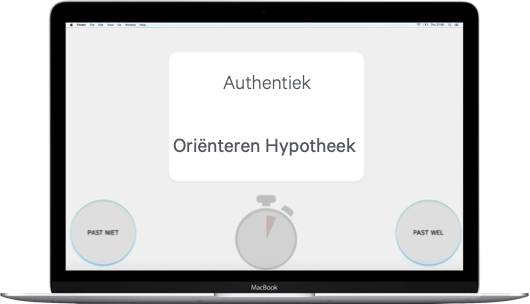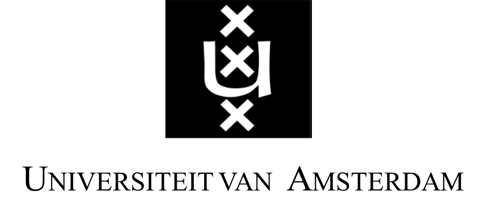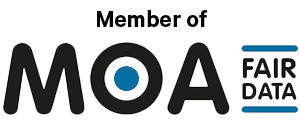Background
MUNT Hypotheken is part of the 10 biggest mortgage providers in The Netherlands and they wanted to optimise their customer journey. The goal was to map the associations that are crucial for each phase of a mortgage application.
MUNT Hypotheken's question
Which associations are important for the client during:- Orientation (the first meeting) – phase 1
- Decision (advice from an intermediary) – phase 2
- Acceptance (accepting the mortgage proposal) – phase 3
The study
We used RIAT (Rapid Implicit Association Task) to study this. Respondents were shown different associations and were under a time pressure to indicate whether or not they believed the associations fit well. The time pressure is essential to ensure that the respondent doesn't think too much about it before they answer. In this way, you get unfiltered reactions, which are stored in the respondent's memory and better represent what they truly believe.

The results
The study showed that for each of the three phases, there are three associations which are important to the consumer.
Orientation phase
In the orientation phase, the most important associations are reassurance, authenticity and creativity.
- Reassurance: buying a house is a big decision, it involves a lot of money. Therefore, the consumer believes that it's important that the provider is prepared to reassure them.
- Creativity: each person believes themselves to be unique, this means that there's a great need for a tailored solution. Therefore, it's expected that the mortgage provider is able to offer creative solutions.
- Authenticity: consumers expect craftsmanship, expertise and attention from the mortgage provider.
Decision phase
When applying for the mortgage, there are other associations which are important: helpfulness, speed and strength.
- Helpfulness: unconsciously, people have taken an important step. Things can only go wrong from here. Continuing to follow-up, maintaining strong contact with the client and a giving them a feeling of customisation will keep the client satisfied.
- Speed: when one has unconsciously said "yes", waiting "hurts" and can be irritating during an important "NPS-moment". Speed of action can determine the success and recommendation to third parties of the intermediary.
- Strength: at this stage, there is still a lot of uncertainty. A decisive (contact) and empathic (recognition) advisor makes all the difference here.
Acceptance phase
During the acceptance phase, the following associations are important: speed, creativity and value.
- Speed: this is without a doubt the most important association. The house is often bought subject to a mortgage. The decision is made, so all the time between acceptance and a handover seems like wasted time.
- Creativity: there is still a lot that needs to happen. Paperwork. Thinking along about practical solutions for small inconveniences will score points.
- Value: it is exactly at this stage where the advisor can show and confirm his added value. This is the point where the competition often loses focus. After all, deed is done.
Advice for MUNT hypotheken
This study showed that the needs of the clients change considerably throughout the customer journey. For an optimal customer journey, MUNT hypotheken is advised to align their communication and services with the most important associations that were found during our study. From the first point of contact, authenticity is crucial, during the offer process, helpfulness is key and once the mortgage has been granted, speed is the golden ticket.







